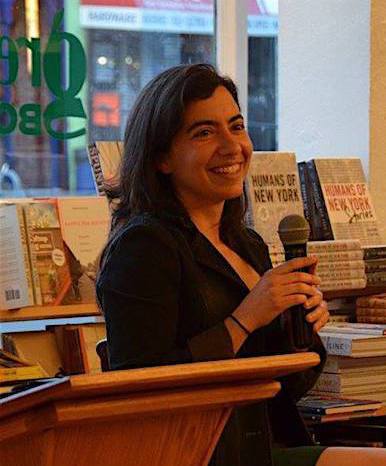With the technological advances humans have made in the past century—decade even—to someone from the past it may seem as if we’re living in a futuristic, Star Trek-like world. Many even attribute the speed and success of our innovation to science-fiction television, film and literature.
For someone like Malka Older, sci-fi and tech play an interesting role in her life.
“Electricity. Honorable mention to contact lenses, the birth control pill, and the Internet.” Older said when asked what the most influential and important piece of technology was.
“[Sci-fi] was just one of the things I read.” Older said. “I don’t really care whether it involves dragons or spaceships or smut…those things may add enjoyment, but to me they are not essential to the quality of the work.”

Older has been named Senior Fellow for Technology and Risk at the Carnegie Council for Ethics in International Affairs and has more than ten years of experience in humanitarian aid and development working in places such as Sri Lanka, Uganda, Darfur, Indonesia, Japan and Mali.
In 2016, Malka also published her debut novel, “Infomocracy,” a political-sci-fi thriller highlighting the discordance between participatory and representative government.
I asked Older if there was anything she’d seen in an old sci-fi show that made her think, “wow, why haven’t we developed this by now?”
“World peace.” she so candidly said—and I couldn’t agree more.
In Older’s work all over the world, something like a world peace makes sense. Although most people think of sci-fi as this distant future of tech and society, Older is someone who can see the potential that tech and innovation has to better our current world.
“I also see sci-fi as really important in allowing us to find different routes towards our goals for humanity. Adding a piece of tech, even if it’s totally unrealistic, can help us see the things that we do have power over in a different way.” Older said.
Older’s panel is all about how the fictional sci-fi has influenced current tech, specifically in regards to CEO’s like Amazon’s Jeff Bezos and Tesla’s Elon Musk, who seems to align closely with the “dream future” of sci-fi.
Musk spoke at a 2014 MIT symposium where he emphasized the influence Star Trek has had on him; largely due to the fact that it tends to portray a utopian-evolved, peaceful Earth.
“We write our stories based on what we hope for and what frustrates us; if we can write them with enough empathy and imagination, they can change the limits of thought.”
Malka Older
Be sure to attend Sci-Fi CEO’s How Fictional Futures Influence Tech as we see where New America’s Open Technology Institute’s Kevin Bankston, Quartz’s Tim Fernholz, author Eliot Peper and Older all fall on the future of tech, its influence and whether or not this influence is truly good or bad. #SciFiCEOs
Friday, March 8
5:00 p.m. – 6:00 p.m.
JW Marriott – Salon F

Comments are closed, but trackbacks and pingbacks are open.